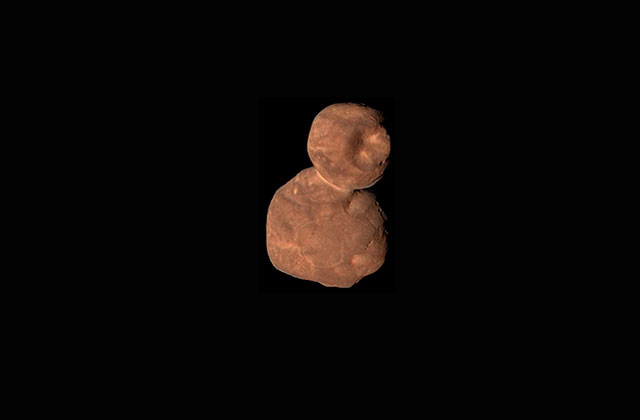A world four billion miles from Earth has officially been named Arrokoth, an Algonquian word that translates to “sky” in English, NASA announced Tuesday (November 12) during a ceremony at NASA Headquarters in Washington, D.C.
“The name Arrokoth reflects the inspiration of looking to the skies and wondering about the stars and worlds beyond our own,” Alan Stern, New Horizons’ principal investigator from Southwest Research Institute in Boulder, Colorado said in a statement.
Lori Glaze, director of NASA’s Planetary Science Division added: “We graciously accept this gift from the Powhatan people. Bestowing the name Arrokoth signifies the strength and endurance of the Indigenous Algonquian people of the Chesapeake region. Their heritage continues to be a guiding light for all who search for meaning and understanding of the origins of the universe and the celestial connection of humanity.”
Arrokoth, which represents the farthest flyby ever conducted by spacecraft, at one billion miles beyond Pluto, was originally nicknamed “Ultima Thule” and is one of the thousands of small icy worlds in the Kuiper Belt. Because of its distance, scientists “believe this ancient body, composed of two distinct lobes that merged into one entity, may harbor answers that contribute to our understanding of the origin of life on Earth,” said Marc Buie, of the Southwest Research Institute.
To that end, NASA said that the team chose to associate the name with the culture of the Native peoples who lived in the Maryland region where the object was discovered, which connects the discovery back to the Chesapeake Bay region and the Powhatan people.
